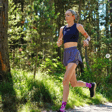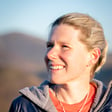
Team SweatElite | Eurotrip
In June, Team SweatElite claimed victory over 16 other teams in Eurotrip - a 400km non-stop relay run from Cologne in Germany to Strasbourg in France.
EuroTrip has very few rules; teams are made up of 8 people, 2 of which must be female, there are 5 checkpoints to hit and motorways are not allowed.
Teams must combine running ability, ordering and shift strategy, fuelling and wayfinding to succeed.
Working alongside Precision Fuel and Hydration, Team SweatElite was made up of runners from UK, Ireland, USA, Sweden and Australia most of whom had never met before.
Despite being one hour behind at one point, they pulled through hard towards the end, picked a very fast route into the finish and pipped Team Volt by 14 seconds for a dramatic finish.
A fascinating episode with 4 members of the team about the physical demands of this epic event, and the logistical approach that was needed to take the team to victory in this unique event.



















